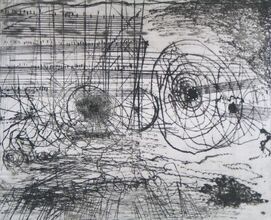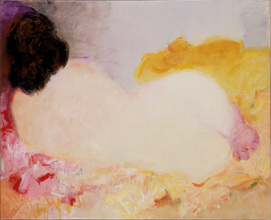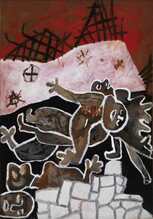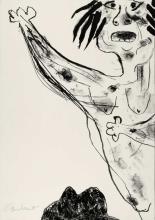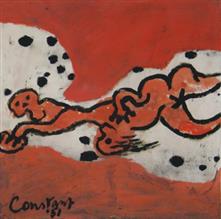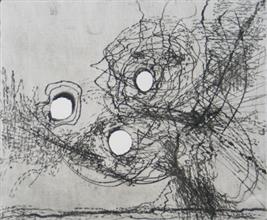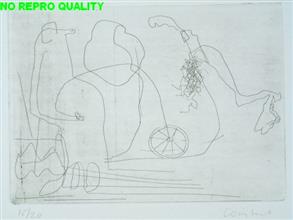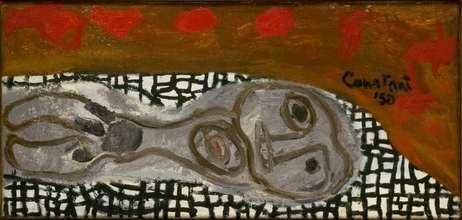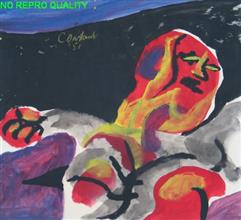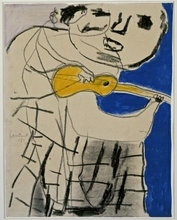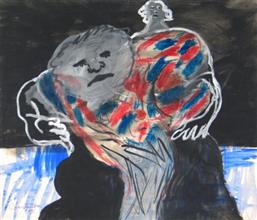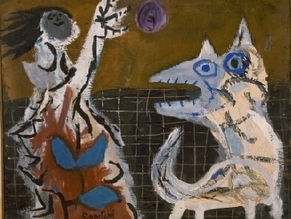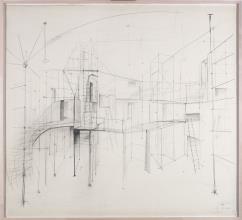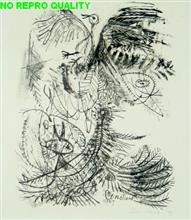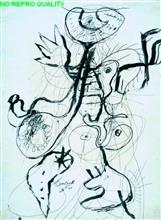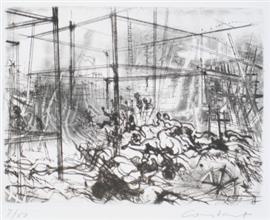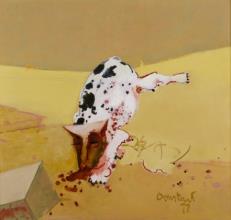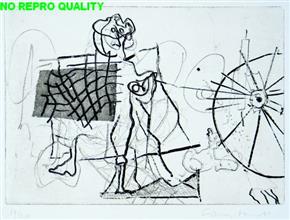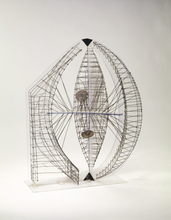Spatiovore
Constant
In the early 1950s Constant’s interests shifted from painting to three-dimensional design. Along with Aldo van Eyck he published texts on Spatial Colourism, a concept centred on the integration of colour and form in architecture. During this period, continuing through the 1960s, Constant began building architectural models such as Space Eater. His constructions were exhibited at the Stedelijk Museum in 1959 and culminated in Constant’s design for a utopian city, New Babylon. In this city work would be completely automated so the inhabitants could devote their entire day to leisure and play. Citizens would be free to indulge their creativity. Eventually the artist as occupation would become superfluous. Space Eater demonstrates Constant’s idea for New Babylon with living spaces suspended above the ground where work takes place. The recreation areas would be entirely mutable with the capability of changing each room’s colour, atmosphere and size. Constant’s utopian design was closely associated with the International Situationist movement, of which he was a founder.
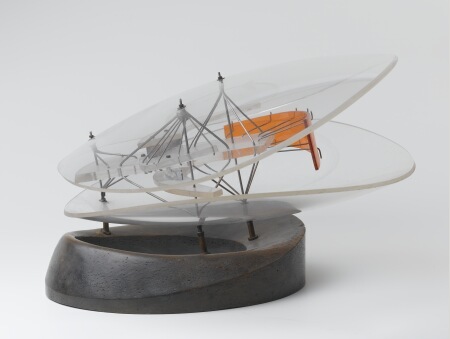
Makers
Collection
Production date
1958-1959
Library
Click here to view 11 related documents
Dimensions
25 x 56 x 41cm.
Material
perspex, metal, wood
Object number
BA 340

